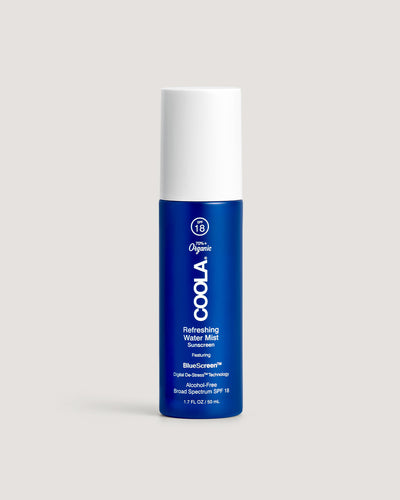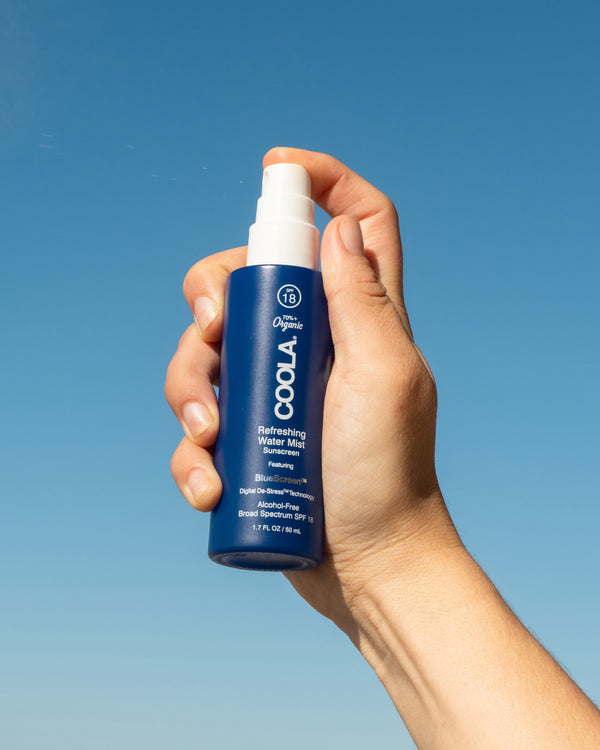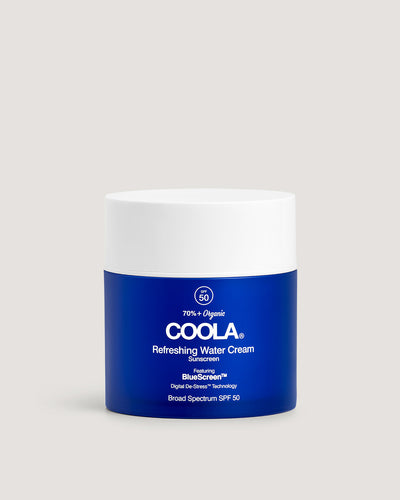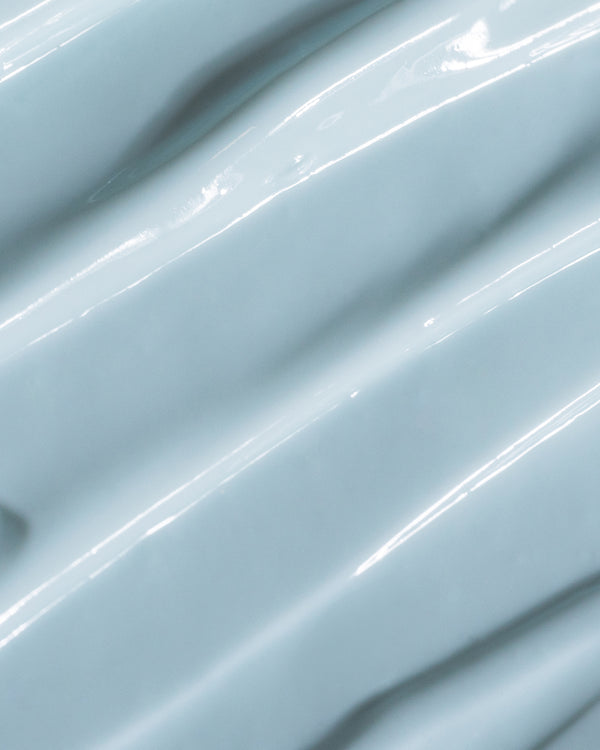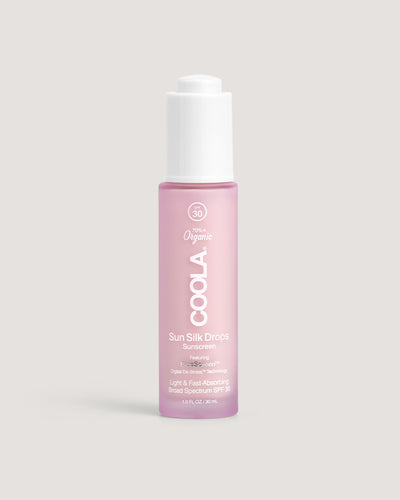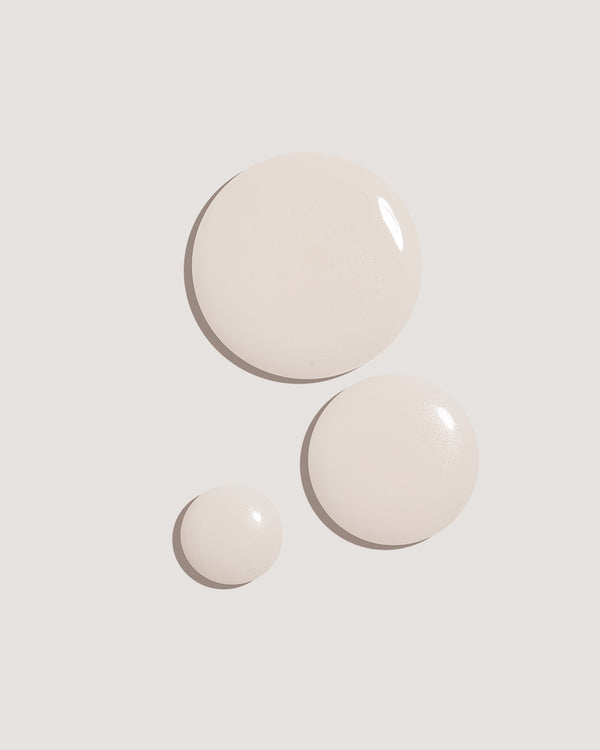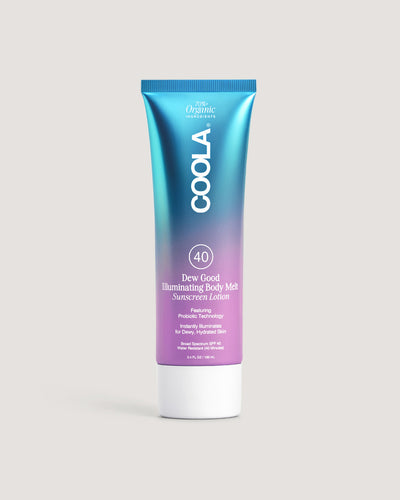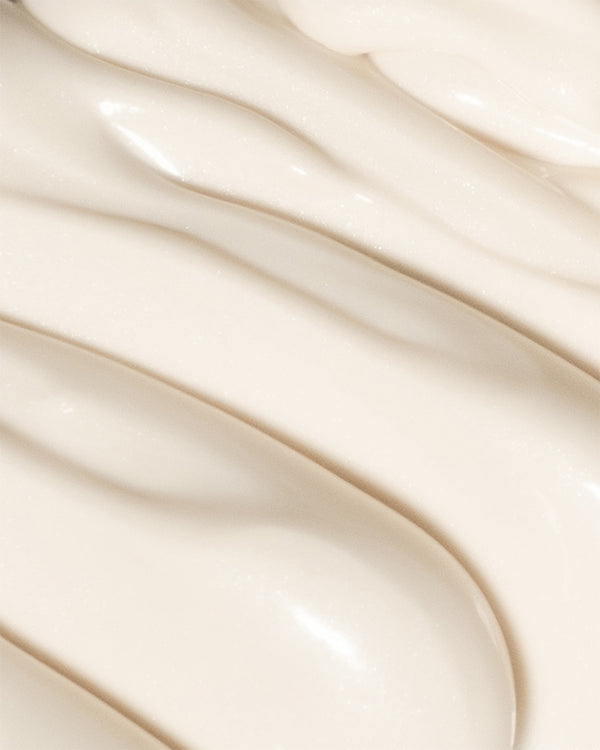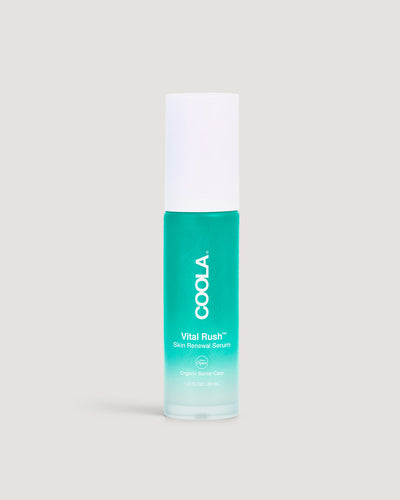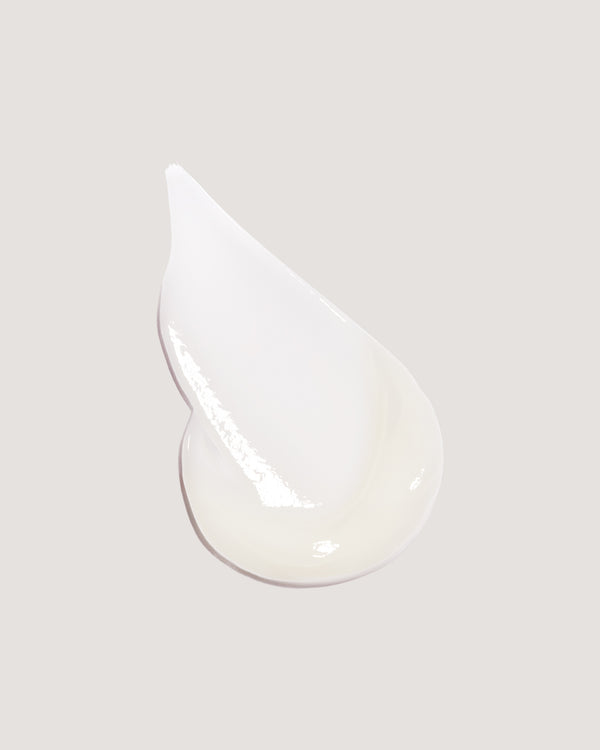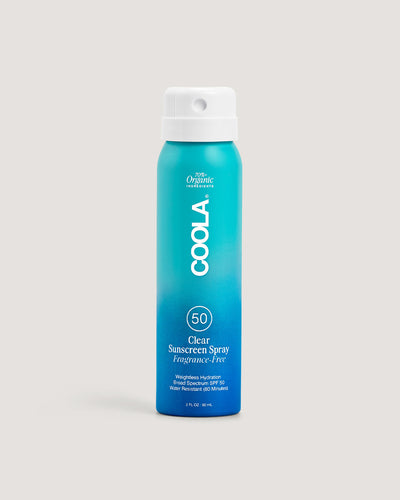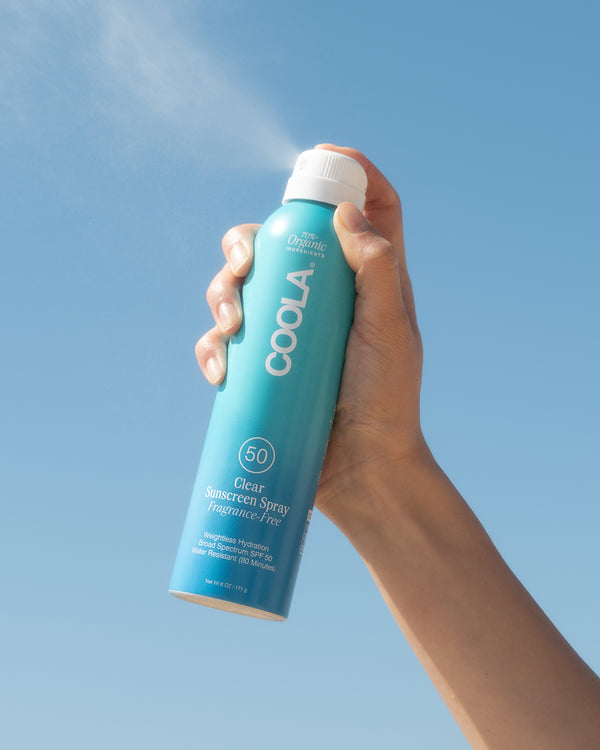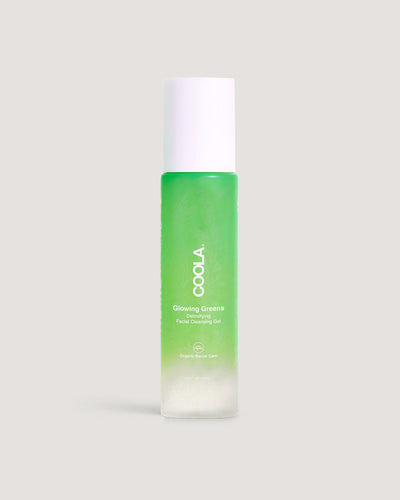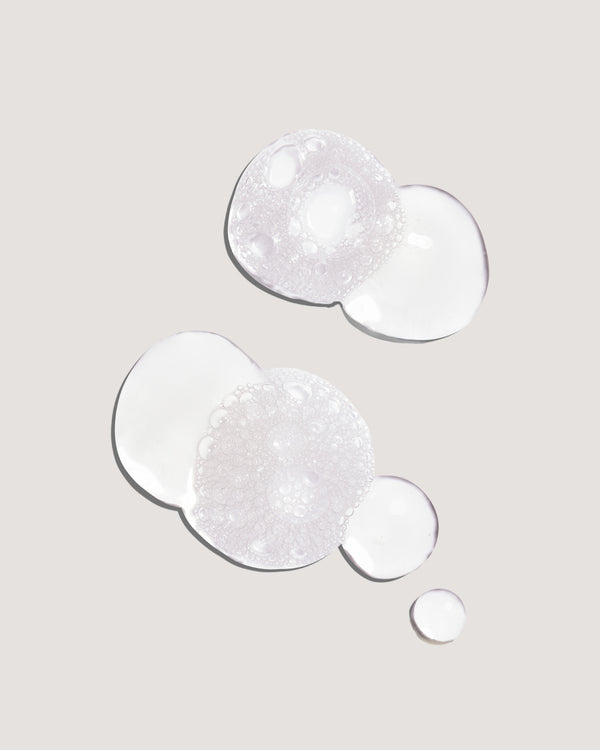
What Are Active Ingredients in Skincare? A Complete Guide to Skincare Actives
Skincare isn’t just about putting products on your face and hoping for the best. You need to select products that balance the right ingredients that work with your skin. It’s a large part of how we approach our product formulations at COOLA.
Why do active ingredients matter in skincare? They are the targeted compounds that actually do something for your skin to address specific concerns.
Keep reading to learn more about the answer to the question, “What are active ingredients in skincare?” Active ingredients can transform your daily face and beauty routine into an effective, science-backed ritual.
What are active ingredients in skincare?
Active ingredients are the essential components of skincare products. They are specially formulated compounds that address specific skin concerns, such as aging, acne, dryness, or pigmentation.
Think of active ingredients as the muscles in your skincare products. They are the ones doing the heavy lifting in your skincare regimen.
For example, salicylic acid is a beta-hydroxy acid (BHA) used to treat acne. It’s a naturally occurring substance found in spearmint, broccoli, and grapes that can dissolve skin debris that clogs pores.1 Mineral SPF products contain either zinc oxide or titanium dioxide as their active ingredients, which provide strong sun protection.
Inactive ingredients, including probiotics, mainly serve as carriers or stabilizers to make sure the active ingredients blend well together to form a rich, creamy product.
Why skincare actives matter in your routine
Actives in skincare can address specific concerns. This is where consistency outweighs complexity. Looking to fight wrinkles? Consider products with retinoids. Do you have dry skin? Hyaluronic acid is the way to go.
SPF is important in your skincare regimen because UV exposure from sunlight can undermine visible results from skincare actives. UV rays can break down some substances, much like sunlight can fade paper and drapes over time, making your skincare products less effective. Retinol, in particular, is sensitive to light. Benzoyl peroxide, a skincare active that fights acne, could break down into benzene when exposed to sunlight over long periods.2
Incorporating daily SPF skincare is a vital step in your daily routine. Our Refreshing Water Cream SPF 30 helps support long-term results from actives.
Common active ingredients in skincare and what they do
Active ingredients, backed by scientific research, are carefully selected for their efficacy and ability to deliver visible results when used properly. Let's go over some of the most effective active ingredients and uncover how they can revitalize your skin.
Retinoids (Vitamin A)
Retinoids, derived from vitamin A, strengthen your skin’s flexibility to reduce wrinkles. These compounds have been used in anti-aging skincare products since the 1990s. They speed up cell turnover, fade age spots, soften wrinkles, and improve the appearance of fine lines and uneven texture. However, they can be potent and highly concentrated, so it's essential to introduce them slowly into your routine, especially if you have sensitive skin.3
Retinoids are typically used at night to prevent UV rays from breaking them down. Daily broad-spectrum SPF should be used the following morning.
Hyaluronic acid
Hyaluronic acid has many benefits for the face, mostly for maintaining moisture levels and creating plump-looking skin. It can hold up to 1,000 times its weight in water, making it an excellent ingredient for keeping the skin hydrated, plump, and youthful. It's a must-have for anyone aiming to quench thirsty skin and achieve that coveted dewy look.4
Hyaluronic acid works across skin types. It also layers easily with other actives, such as those found in COOLA’s Refreshing Water Cream SPF 50 formula.
Vitamin C
A powerful antioxidant, vitamin C is all about brightening and protecting your skin. It’s commonly used in morning routines. Vitamin C fights free radicals, evens out skin tone, and boosts collagen production.5 It’s like a daily dose of sunshine for your skin, giving it a radiant, healthy glow. Consider our Sun Silk Drops SPF 30 as a lightweight SPF skincare option that pairs well with antioxidant-focused routines.
Niacinamide (Vitamin B3)
Niacinamide, or vitamin B3, is a true multitasker. It strengthens and supports the skin's barrier, reduces inflammation, controls oil production, and diminishes the appearance of pores. Vitamin B3 helps improve redness, so it’s particularly effective for those struggling with acne or rosacea.6 This compound is compatible with most multitasking actives, like those found in our Dew Good Illuminating Serum SPF 30.
AHAs and BHAs
Alpha hydroxy acids (AHAs), like glycolic acid and lactic acid, work on the skin's surface to brighten and smooth. AHAs exfoliate the skin’s surface so it can more readily receive active ingredients.
Beta hydroxy acids (BHAs), such as salicylic acid, penetrate deeper to unclog pores and combat acne.
Together, they're the dynamic duo of exfoliation, sloughing away dead skin cells and revealing a fresher, clearer complexion.7 Use AHAs and BHAs with caution because they can increase skin sensitivity if you overuse them. None of COOLA’s products have these two actives, but you can lean into our plant-based product lines as a gentler alternative. We recommend the Vital Rush Skin Renewal Serum.
Additional skincare actives you should know
A few other active ingredients in skincare include:
- Benzoyl peroxide is known for its effectiveness against acne-causing bacteria. Think about this skincare active ingredient to fight breakouts.8
- Vitamin E, found in almonds, is a nurturing antioxidant that works with vitamin C to enhance the skin’s protective layer.9,10
- Salicylic acid,a BHA used for oily and acne-prone skin, helps to dissolve skin debris that can clog pores and lead to breakouts.11
- Glycolic acid is an AHA that exfoliates the skin while improving texture and revealing a brighter complexion.12
- Peptides, naturally occurring proteins found in your body, form the building blocks of collagen, elastin, and keratin in your skin. These compounds signal your body to create more proteins to revitalize and rejuvenate your skin.13
Active ingredients to be mindful of or avoid
Many active ingredients in skincare are beneficial and are approved by the FDA. However, certain ones can pose problems for specific skin types or sensitive skin. It's important to be aware of these, so you can choose products that meet your skin's needs. This includes knowing which sunscreen ingredients to avoid. See what we mean with this brief list:
- High Concentration AHAs/Retinoids: If you have sensitive skin, high concentrations of Alpha Hydroxy Acids (AHAs) or retinoids can irritate your outer layer. These ingredients, though effective for anti-aging and exfoliation, can cause redness, peeling, and sensitivity if used excessively or if your skin isn't accustomed to them. Use these products with caution.
- Alcohol-Based Products: Alcohol can dry and irritate your skin, so you might avoid this active ingredient if you already have dry or sensitive skin. Alcohol is an excellent astringent and antimicrobial compound. But it can strip the skin of its natural oils, leading to dehydration and irritation.
- Synthetic Fragrances and Dyes: All COOLA formulas are made with no synthetic fragrances. These additives, often used in skincare for sensory appeal, can contribute to allergic reactions and skin sensitivities. If your skin is prone to irritation, think about a fragrance-free, gentle SPF with dye-free options. Mineral Sun Silk SPF 30 is a great place to start, with a sheer, lightweight feel that layers seamlessly into your routine.
- Sulfates: Common in cleansers, sulfates like sodium lauryl sulfate can be too harsh for delicate skin. They can strip away natural oils, leading to dryness and irritation.
- Parabens: Although the research is ongoing, some studies suggest that parabens, used as preservatives in cosmetics, may disrupt hormone function. Those concerned about such effects may choose to avoid them.14
- Mineral Oil: This ingredient can clog pores and exacerbate acne. It's particularly problematic for oily or acne-prone skin types.
We highly recommend performing a patch test with new products and consulting with a dermatologist, especially if you have sensitive or reactive skin. This careful approach ensures that your skincare routine supports and nurtures your skin without causing adverse reactions.
How to choose the right actives for your skin type
Here are some tips and tricks for selecting the correct skincare active ingredients for your skin type:
Dry Skin: Look for hydrating, barrier-supporting actives with hyaluronic acid, such as our Refreshing Water Cream SPF 50.
Oily Skin: Find products that are lightweight and balance the oil content of your skin. COOLA’s Sun Silk Drops SPF 30 can help.
Combination Skin: Search for multi-tasking actives that hydrate and refine, such as ones with vitamin C, zinc oxide, and niacinamide.
Sensitive Skin: Gentle actives with lower concentrations work best, including the ingredients found in our mineral sunscreens.
How skincare actives work best with SPF
Why is SPF important when optimizing your skincare routine? UV exposure can counteract the visible benefits of skincare active ingredients. Plus, daily broad-spectrum SPF supports long-term skin health by reducing skin damage over time.
There are many skincare products with sun protection ingredients that have an SPF of 30 or higher, providing an ideal barrier against the sun’s rays. Think about our hydrating SPF moisturizers or COOLA’s high-SPF products with an SPF of 50+ for daily wear, heading to the beach, or when you want to boost your skincare routine.
Frequently asked questions about skincare actives
What are the best active ingredients for skincare?
It depends on what you are trying to achieve. Dermatologists recommend two top ingredients: mineral sunscreen and retinoids (but use retinoids with caution or in low concentrations).15
Can you mix different skincare actives together?
Absolutely, especially with mineral sunscreen. Beneficial combinations include niacinamide with vitamin C for brightening and hyaluronic acid with retinol for anti-aging (use retinoids in low concentrations).
Can you use skincare actives every day?
You can use some active ingredients in skincare daily, like gentle antioxidants, vitamin C, and niacinamide. Mineral sunscreen is also a good choice as long as you wash off the sunscreen before going to bed.
What order should you apply skincare actives in?
- Cleansers to make your skin ready to receive nourishing ingredients.
- Gentle toners/exfoliators to set the stage for your main formula.
- Water-based serum with hyaluronic acid and vitamin C for hydrating.
- Spot treatment for various parts of your face, like your eyes or cheeks.
- Finish with sunscreen to protect your skin.
Are skincare actives better used in the morning or at night?
Morning is ideal for protective formulas using vitamin C, hyaluronic acid, and sunscreen. Night is best for repair-focused ingredients that are more sensitive to sunlight, like retinoids and AHAs.
Building a smarter skincare routine with actives
When creating your ideal skincare regimen with active ingredients, it’s important to go with knowledge over trends and consistency over complexity. Trendy items may not have the gentle, science-backed ingredients to nourish and replenish your skin. Complex items could contain too many non-essential ingredients that could diminish the positive effects of beneficial active ingredients. SPF is essential because UV rays can damage your skin and reduce the effectiveness of skincare actives.
Take a look at COOLA’s SPF skincare designed to work seamlessly with active ingredients in your chosen products. They are gentle and backed by science.
Sources:
- WebMD, “High Salicylate Foods”. https://www.webmd.com/diet/high-salicylate-foods
- NHS, “How and when to use benzoyl peroxide”. https://www.nhs.uk/medicines/benzoyl-peroxide/how-and-when-to-use-benzoyl-peroxide/
- Zasada, Malwina, and Elżbieta Budzisz. “Retinoids: Active Molecules Influencing Skin Structure Formation in Cosmetic and Dermatological Treatments.” Postepy Dermatologii i Alergologii, vol. 36, no. 4, 2019, pp. 392-397. https://pubmed.ncbi.nlm.nih.gov/31616211/
- Papakonstantinou, Eleni, et al. “Hyaluronic Acid: A Key Molecule in Skin Aging.” Dermato-endocrinology, vol. 4, no. 3, 2012, pp. 253-258. https://pubmed.ncbi.nlm.nih.gov/23467280/
- "Vitamin C." Harvard T.H. Chan School of Public Health, https://www.hsph.harvard.edu/nutritionsource/vitamin-c/
- "Niacinamide." Healthline, https://www.healthline.com/nutrition/niacinamide
- "Skin Care Ingredients Explained." Cleveland Clinic, https://health.clevelandclinic.org/skin-care-ingredients-explained
- Matin, T., and M. B. Goodman. "Benzoyl Peroxide." StatPearls, StatPearls Publishing, 10 Oct. 2022, https://www.ncbi.nlm.nih.gov/books/NBK537220/
- Nguyen, Gloria, and Abel Torres. “Systemic Antioxidants and Skin Health.” Journal of Drugs in Dermatology: JDD, vol. 11, no. 9, 2012, pp. E1-4. https://pubmed.ncbi.nlm.nih.gov/23135663/
- "Why Is Topical Vitamin C Important for Skin Health?" Harvard Health Blog, Harvard Medical School, https://www.health.harvard.edu/blog/why-is-topical-vitamin-c-important-for-skin-health-202111102635
- "Best Salicylic Acid Products for Acne." NBC News, https://www.nbcnews.com/select/shopping/best-salicylic-acid-products-acne-ncna1274542
- Tang, Sheau-Chung, and Jen-Hung Yang. “Dual Effects of Alpha-Hydroxy Acids on the Skin.” Molecules, vol. 23, no. 4, 2018, 863. https://pubmed.ncbi.nlm.nih.gov/29642579/
- “Peptides for Skin Care: Are They Worth It?” Cleveland Clinic. https://health.clevelandclinic.org/peptides-for-skin
- Nowak, Karolina, et al. “Parabens and Their Effects on the Endocrine System.” Molecular and Cellular Endocrinology, vol. 474, 2018, pp. 238-251. https://pubmed.ncbi.nlm.nih.gov/29596967/
- Northwestern Medicine, “Top Skin Care Ingredients Recommended by Dermatologists” https://www.nm.org/healthbeat/healthy-tips/Top-Skin-Care-Ingredients-Recommended-by-Dermatologists





